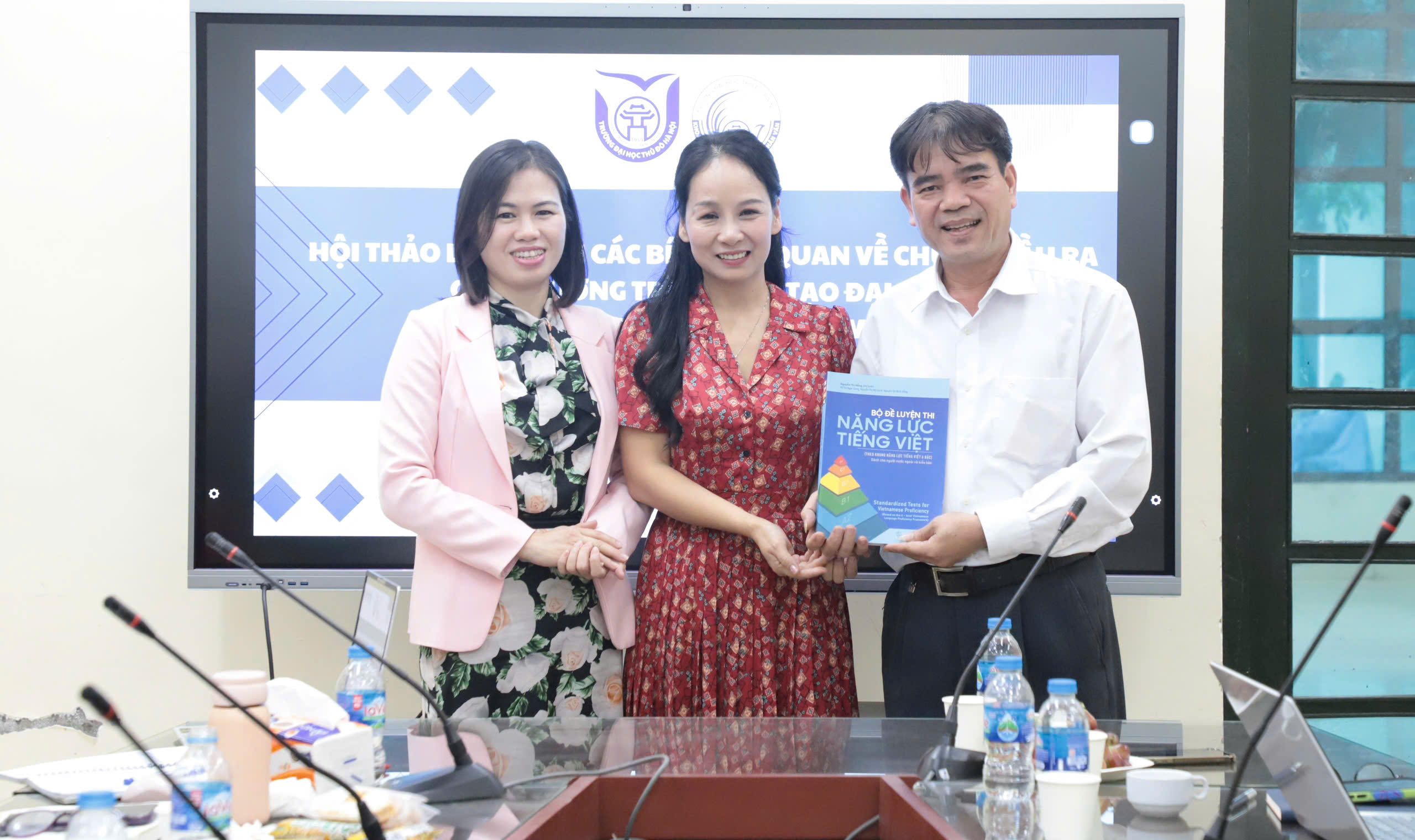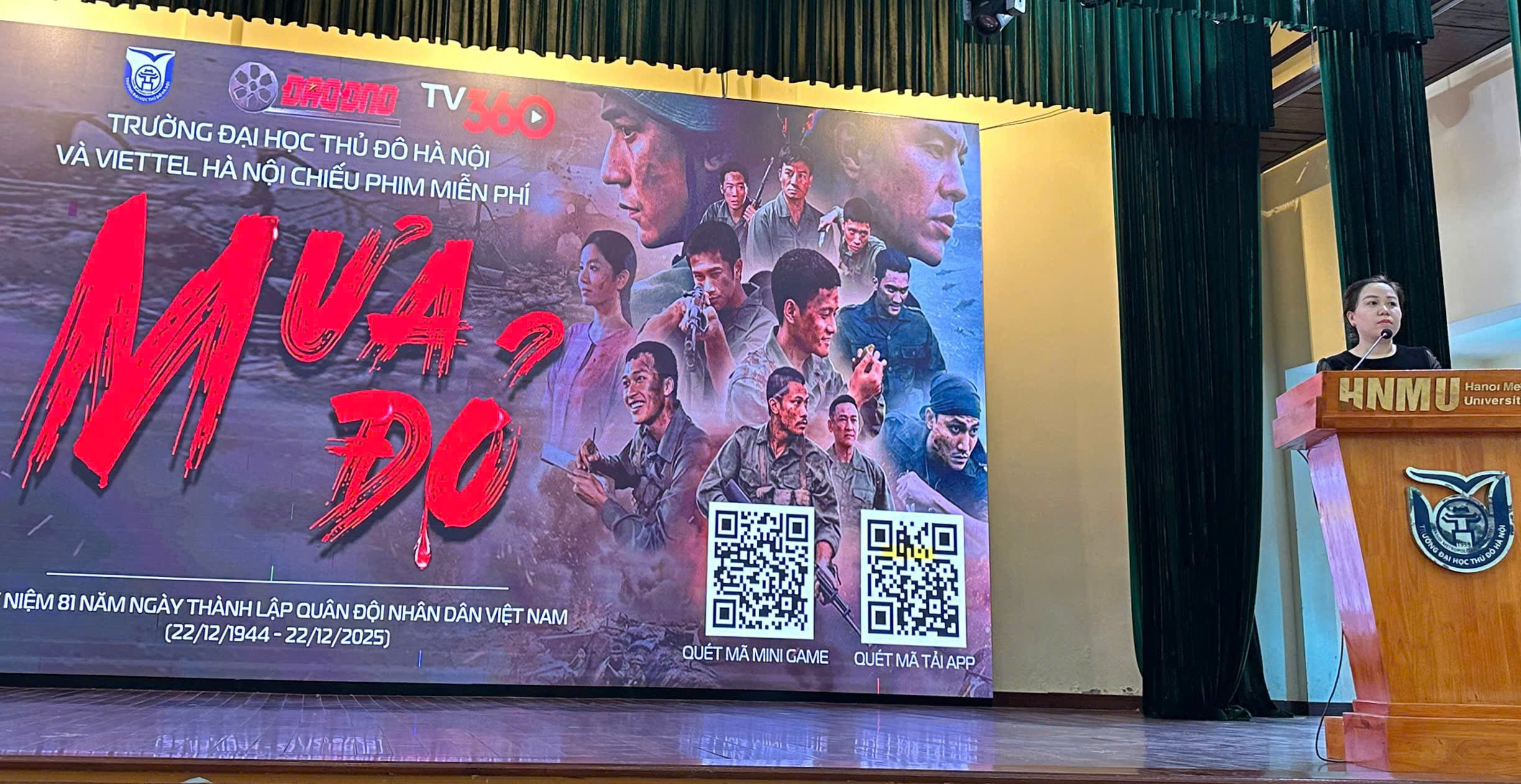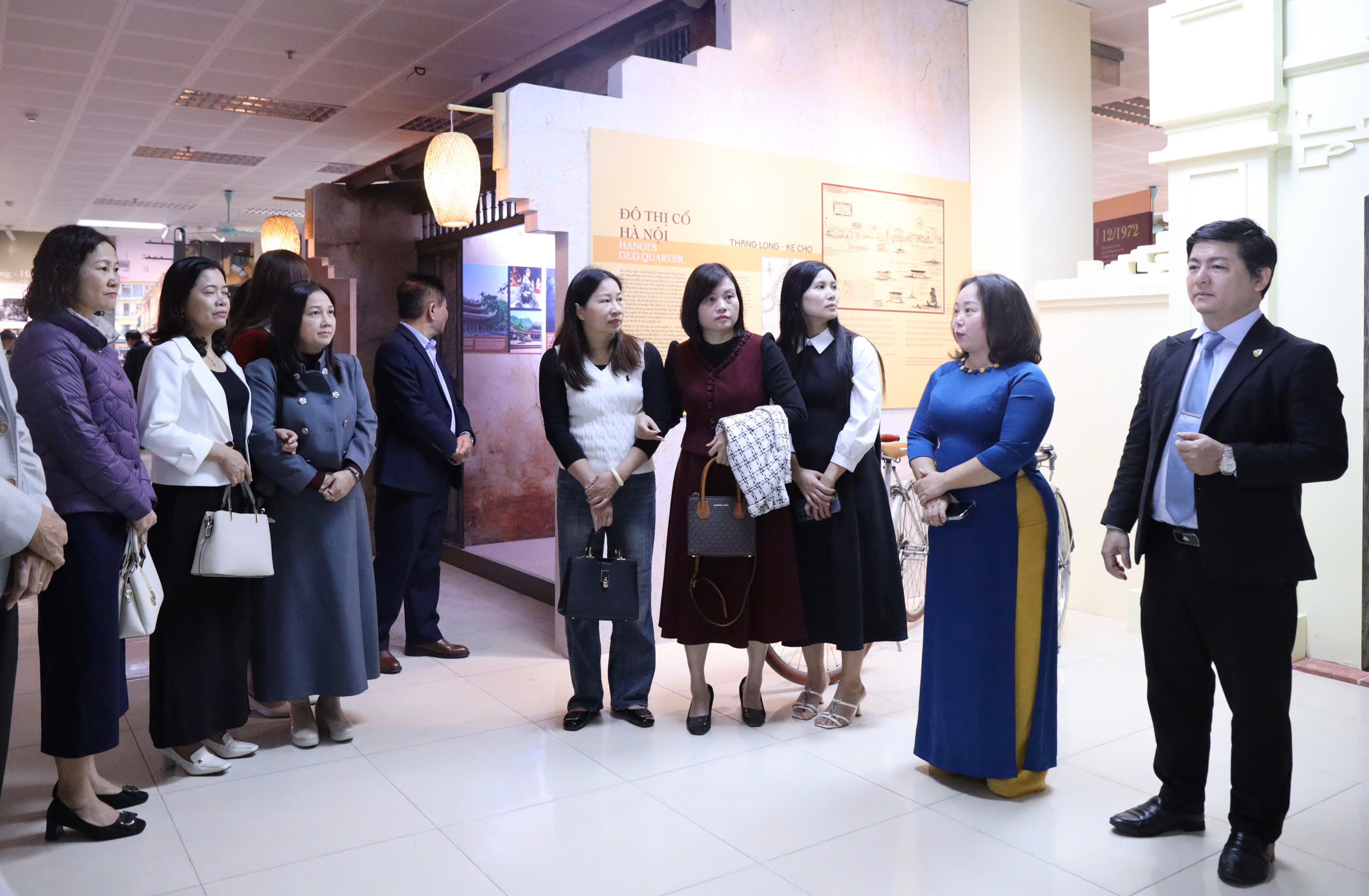Collect feedback from stakeholders on the Learning Outcomes of the undergraduate training program in Vietnamese Language and Vietnamese Culture
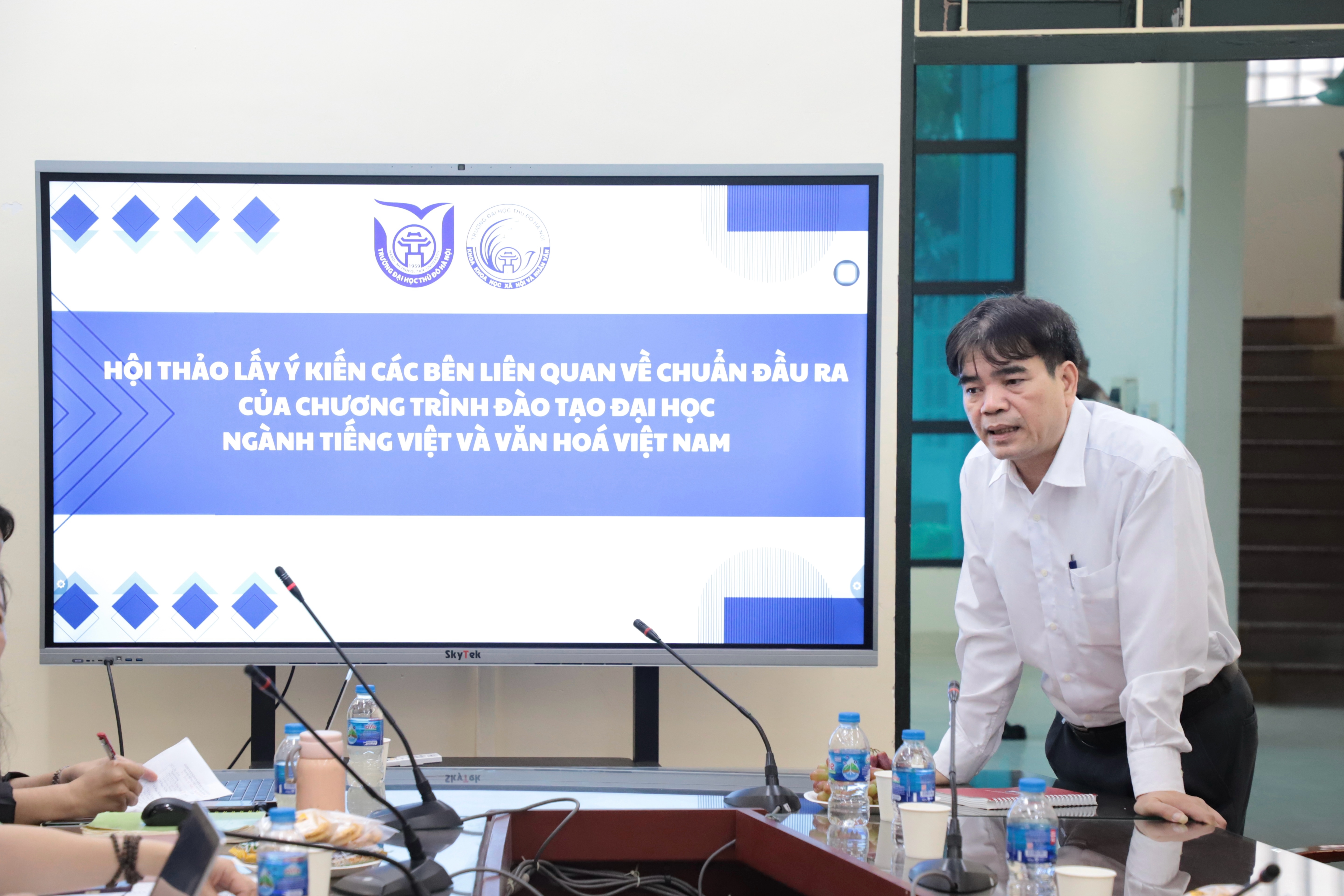
Innovating the learning outcomes of the undergraduate program in Vietnamese Language and Vietnamese Culture – toward practice-oriented training and international integration – is the focus of the scientific conference held at Hanoi Metropolitan University.
On the morning of October 31, the Faculty of Social Sciences and Humanities – Hanoi Metropolitan University organized the scientific conference titled “Collecting feedback from stakeholders on the Learning Outcomes of the undergraduate training program in Vietnamese Language and Vietnamese Culture.” The event aimed to assess, review, and refine the program’s learning outcomes (PLOs), ensuring alignment with Level 6 of the National Qualifications Framework and meeting the demands of the labor market, digital transformation trends, and international integration.
The conference welcomed many scholars and experts from various research and training institutions: Assoc. Prof. Dr. Lê Thị Thùy Vinh, Hanoi Pedagogical University 2; Dr. Bùi Thị Ngọc Anh, Institute of Linguistics; Dr. Phạm Thị Hà and Assoc. Prof. Dr. Dương Tuấn Anh, Hanoi National University of Education; Dr. Phạm Thị Mai Hương, Vietnam Vietnamese Language and Culture Training Joint Stock Company; Dr. Phạm Thị Nhạn, Vietnam Women’s Academy; and Dr. Bùi Duy Dương, VNU University of Social Sciences and Humanities. From the host institution, participants included Dr. Lê Thị Thu Hương, Director of the Institute of Hanoi Studies; Assoc. Prof. Dr. Vũ Công Hảo, Dean of the Faculty of Social Sciences and Humanities; along with representatives of functional departments, lecturers, and students of the Faculty.
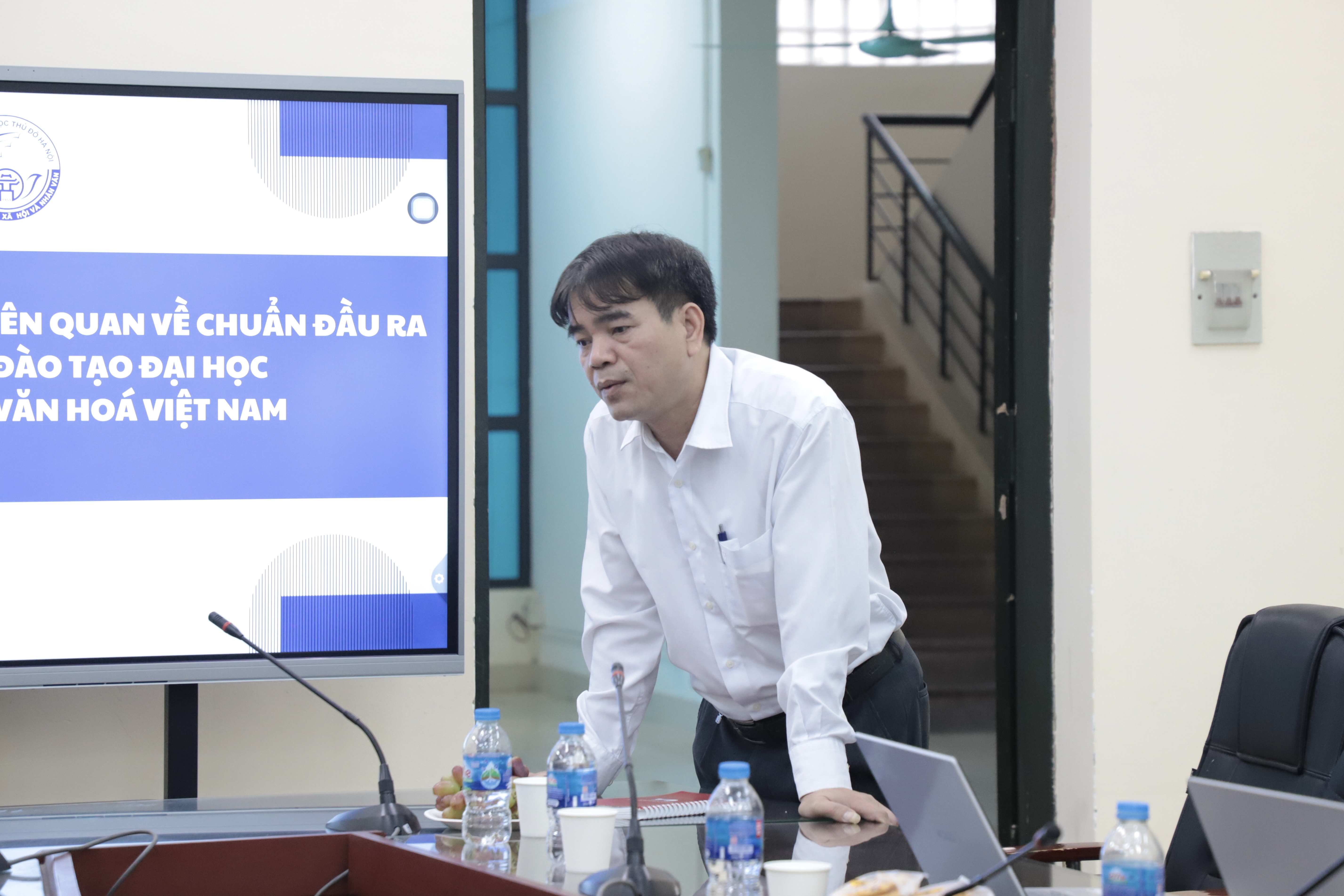
Assoc. Prof. Dr. Vũ Công Hảo, Dean of the Faculty of Social Sciences and Humanities, delivers the opening remarks
In his opening speech, Assoc. Prof. Dr. Vũ Công Hảo emphasized that the conference is an important step toward reforming the curriculum for the Vietnamese Language and Vietnamese Culture program, ensuring its relevance, practicality, and connection to societal needs. He also highlighted the significance of showcasing the cultural identity of Hanoi—the capital of heritage and creativity. The conference not only holds academic value but also offers practical insights, providing a forum for scholars, administrators, lecturers, and employers to discuss, share experiences, and contribute ideas to improving the curriculum in an open, flexible, and labor-market-oriented direction.
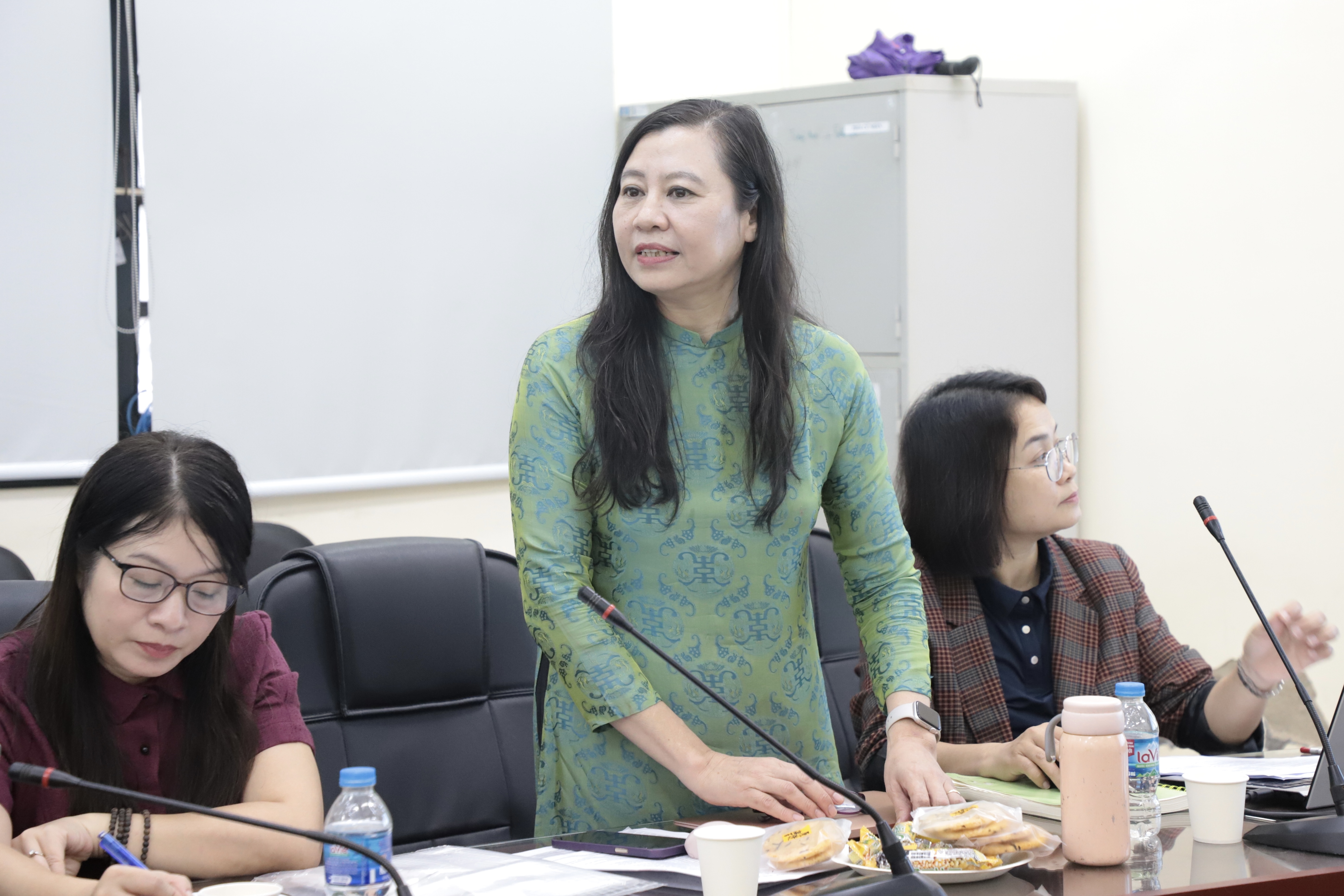
Dr. Nguyễn Thị Thu Nga, Director of the Language and Literature Program, presents the introductory report.
In the introductory report, Dr. Nguyễn Thị Thu Nga presented an overview of the process of designing and adjusting the program’s learning outcomes (PLOs). She clarified the relationship between the program objectives (POs) and the learning outcomes, while proposing a more concise and modern model—reducing the number of outcomes from 17 to 11, grouped into three categories: knowledge, skills, and qualities.
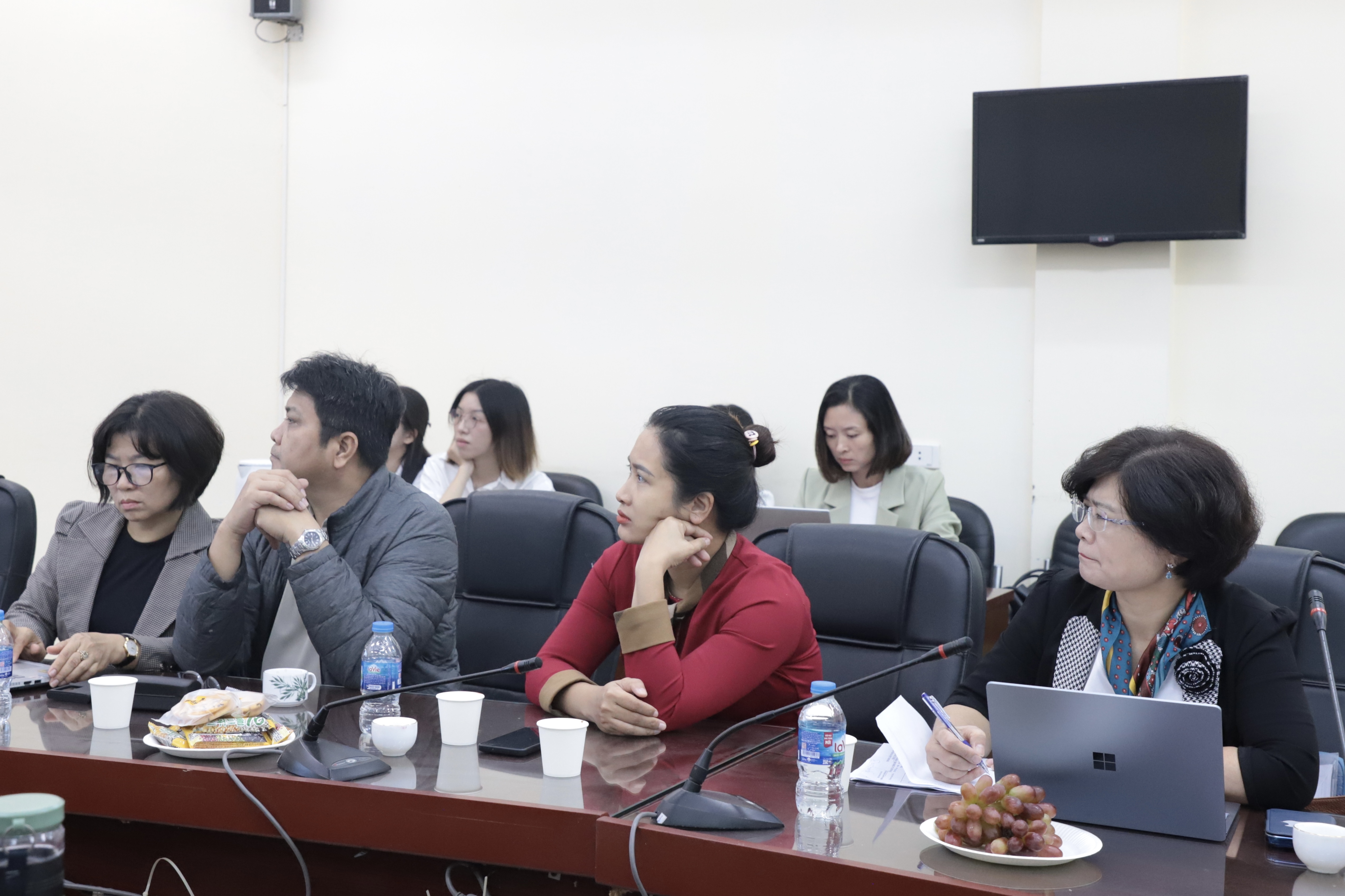
The conference brought together many scholars and experts from various research and training institutions.
Scholars, experts, and lecturers offered in-depth and comprehensive opinions on adjusting the PLOs, training objectives, and curriculum structure of the Vietnamese Language and Vietnamese Culture program, aiming for a balance between academic rigor, practical applicability, and the cultural identity of Hanoi.
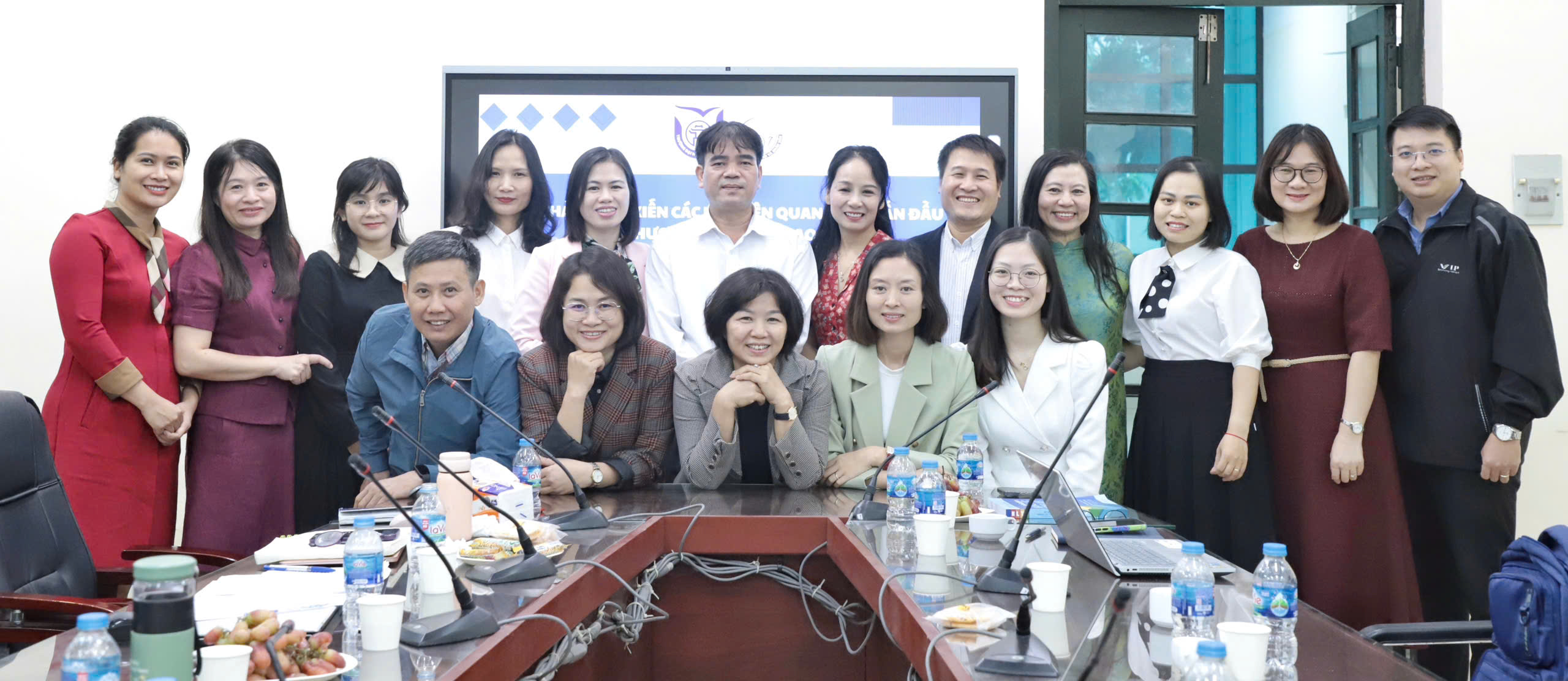
The Faculty of Social Sciences and Humanities – Hanoi Metropolitan University takes a commemorative photo with participating scholars and experts.
Many participants suggested that the program should focus on developing learners’ core competencies, strengthening knowledge in management, applied culture, communication, and publishing, while clearly separating two specialization tracks: Linguistics and Cultural Studies, allowing students to have clearer academic and career pathways. Additionally, attendees emphasized the importance of expanding training opportunities for international learners, adding foundational Vietnamese language and applied culture modules, and enhancing foreign-language training (especially English and Chinese) to improve global integration. Experts also highlighted the need for the program to further strengthen students’ practical professional skills and the ability to produce concrete communication products throughout each phase of their study, as well as helping them identify clear career orientations. Moreover, delegates proposed that the program should express more clearly the cultural identity of Vietnam and the distinct cultural characteristics of Hanoi, integrating modules on applied culture, cultural tourism, cultural exchange and acculturation, thereby enhancing practicality and the dissemination of Vietnamese cultural values.
These contributions not only demonstrate the dedication and responsibility of the participants but also provide essential guidance for renewing and improving training quality, strengthening the connection between theory and practice, and promoting the cultural identity of Hanoi Metropolitan University in the context of integration. The outcomes of the conference have practical significance for reforming the learning outcomes and teaching methods of the Vietnamese Language and Vietnamese Culture program, while affirming the university’s pioneering role in designing training programs that connect knowledge – culture – practice – and integration, toward the goal of developing high-quality human resources who understand culture and possess the adaptability required in a globalized era.
